One of the categories in this year’s reading challenge is a classic romance, and the week before Valentine’s Day seems the perfect time to offer suggestions for this one.
The word “classic” means something different for everyone, so I tried to include a broad range of selections. Yes, there are books that most people would instantly describe as classics, even if it is not their preference–19th century, gets taught in school. But I also included some more contemporary titles that have been popular in recent years.
In addition, I know not everyone enjoys this genre, so I’ve tried to include enough variety that everyone should find something they like, even if “classic romance” isn’t a category they usually read.
If you’re interested in a book or movie, just click on this link, and it will take you to our catalog, where you can search by author or title to check availability, read more information, and place hold requests.
If you like 19th century classics:
any Jane Austen novel*
I don’t think it’s unreasonable to say that, for many people, Jane Austen’s books define the term “classic romance.” Indeed, when I was doing some research for this post, every single list I found of classic romances had Austen’s Pride and Prejudice (1813) as #1, and many of her other works occupied top 10 lists.
I’ve read Pride and Prejudice a couple of times–once on my own as a teenager and once for a British literature class, and I always enjoy it. It’s a fun story full of great characters and Austen’s always wonderful social satire (in fact her ridiculing the social conventions of the day is what I enjoy the most in her novels), but my personal favorites are Northanger Abbey (1817) and Persuasion (1818).
I think I probably enjoy those the most because they surprised me more than her other works. Don’t get me wrong–I liked all of her books, but they definitely follow a pattern of young women in their late teens/early twenties exploring love and romance in middle/upper class Regency England. Northanger Abbey sets itself apart by also being a wonderfully insightful parody of gothic fiction tropes, and Persuasion has a nice twist in that, rather than being about a young woman who is first experiencing love, the protagonist is considered a spinster who squandered her one chance at marriage years before.
Incidentally, I picked Sense and Sensibility (1811) for this challenge. (I had read it once years ago, but honestly only remembered that it was about two sisters, which just proves how little I remembered because you can imagine my surprise when I started rereading it and realized there were actually three sisters in the story.) Notwithstanding my terrible memory, I thought it was charming and funny. Mansfield Park (1814) and Emma (1815) are also other possibilities.
If it’s been awhile since you read Austen–or have never read her–definitely pick up one of her books. Yes, they are romances, but they also are a lot more than that. Beyond the social satire I enjoy so much, Austen is extremely insightful about people, and her characters and her observations about them still ring true centuries later.
*All of the author’s books are also available as ebooks and audiobooks on Libby.
Charlotte Brontë’s Jane Eyre (1842)**
Jane Eyre is another all-time favorite when it comes to romance novels. I personally never read it as a romance–I find Rochester creepy–but I always liked Jane herself and loved the book as a Gothic novel. Regardless of what genre you would classify Jane Eyre as, the protagonist’s adventures and misfortunes, ranging from her time in an unpleasant boarding school to her life as a governess employed by the mysterious Mr. Rochester to care for his French ward, have rightfully been engaging readers for decades.
**Ebook and audiobook also available on Libby.
Anne Brontë’s Agnes Grey (1847)***
Want to read another Brontë sister’s take on governesses falling in love but don’t want to read Jane Eyre? Try Agnes Grey, written by Anne Brontë, who tends to get a lot less name recognition than her two more famous sisters, though she’s also a noted author in her own right. Try this one if you’re looking for a less famous book for this category or if you’re curious about the Brontë sister most people have never heard of.
***Ebook also available on Libby.
If you enjoy gothic romance:
Emily Brontë’s Wuthering Heights (1847)****
Since I’ve covered books from Charlotte and Anne Brontë, I would be remiss not to include their sister Emily’s famous Wuthering Heights. Much like Jane Eyre, I’ve never read Wuthering Heights as a romance, but that’s not to say I don’t enjoy the book. It’s been years since I read it, but I always liked this one a little more than Jane Eyre, if only because its tale of spiteful family feuds that span generations is right up my alley. In the meantime, romantic entanglements between different characters also ensue.
****Ebook and audiobook also available on Libby.
Daphne Du Maurier’s Rebecca (1938)*****
Rebecca is actually one of my favorite books, just in general. It’s quite a bit more modern than the previous entries, having been written in the 1930s, as opposed to the 1800s. However, Du Maurier very consciously modeled this book on 19th century gothic classics, especially Jane Eyre. Rebecca is not the story’s main character, a nameless young woman who has a whirlwind romance with the wealthy, dashing Maxim de Winter and then finds herself living in his palatial mansion in Cornwall, England. Instead, Rebecca is Maxim’s deceased first wife, whose forceful personality still looms over every inch of the house. The protagonist finds herself intimidated by the memory of Rebecca and desperate to learn more about her predecessor. This book also gets bonus points from me for having one of fiction’s creepiest housekeepers, Mrs. Danvers.
*****Ebook and audiobook also available on Libby.
If you prefer more contemporary reads:
A. S. Byatt’s Possession (1990)
This novel actually gives you two romances for the price of one. In the more modern narrative, two contemporary literary scholars–Maud Bailey and Roland Michell–pour through 19th century memoirs, letters, and manuscripts as they try to piece together the relationship that existed between two fictional writers, Randolph Henry Ash and Christabel LaMotte. If you enjoy epistolary novels or just those that are more inventive with their narrative, you might really enjoy this one because Byatt includes the letters, memoir excerpts, and poetry in the narrative, so you can puzzle over them alongside Maud and Roland. This novel received a lot of critical acclaim when it was first released, including winning the esteemed Booker Prize. I remember enjoying this book when I read it a few years ago, though I don’t remember much about it. (I should probably reread it. . . .)
Kazuo Ishiguro’s Remains of the Day (1988)******
Remains of the Day is one of my favorite books, though, like several of the other books covered in this post, I would not initially classify it as a romance. In fact, I would highly recommend this for someone who is looking for a book that fulfills this category but is looking for something that isn’t a traditional romance. The story focuses on Stevens, a straitlaced British butler for an imposing mansion, on a week long holiday. A lot of the book is comprised of flashbacks, and through them, we learn about his long career as a butler, his employer, and the quiet love he harbored for the mansion’s housekeeper. If you like Downton Abbey or history in general, you’ll might really enjoy this one, which is set between WWI and WWII.
******Audiobook also available on Libby.
Ian McEwan’s Atonement (2001)*******
Atonement is somewhat similar to Remains of the Day in that it is a historical romance, dealing with World War II and the years immediately preceding it. It also does not focus entirely on romance, though one romance does drastically affect the outcome of the plot. Beyond that, though, this novel also serves as a meditation on guilt, forgiveness, and writing. The novel’s main character is a teenaged girl, Briony, who falsely accuses her sister’s lover of a crime. I really enjoyed this book–I liked the complex characters (I found Briony herself particularly fascinating), the period detail, and the philosophical issues the narrative wrestles with. It’s only fair warning, though, to say this book is really depressing.
*******Ebook also available on Libby.
Nicholas Sparks’ The Notebook (1996)********
When I was looking for classic romances that are not classics to add to this list, the most recurring suggestion was this Nicholas Sparks’ book, arguably his most famous and popular work. The Notebook has a split narrative, one contemporary and the other set in 1940s North Carolina, and tells the story of Allie and Noah, who love each other passionately, though their very different social classes conspire to keep them apart. Incidentally, Sparks based his tale on his wife’s grandparents.
********Ebook and audiobook also available on Libby.
And don’t forget that a lot of these books have been adapted into popular movies that you can find at the library too!
What’s your favorite classic romance? Which of these books have you read? Interested in reading one of these titles after reading the post? And while we’re on the subject, which film adaptation of a classic romance is your favorite? Tell us all about it in the comments!







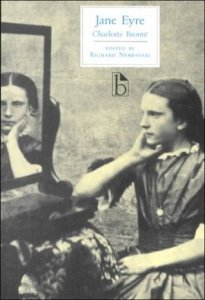
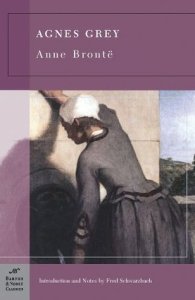
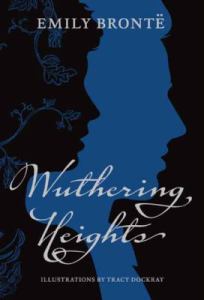
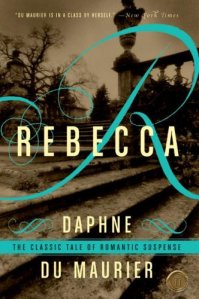
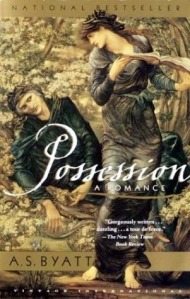
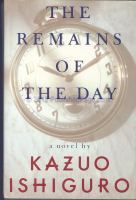
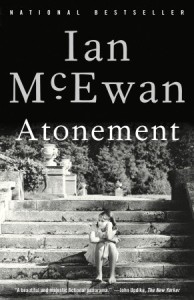
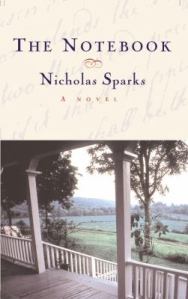










I’ve never really been into romance, I’m more of a Fantasy person. I was wondering a book called “This is What Happy Looks Like” might count as a romance or another one called “The Geography of You and Me” if so then score and if not I might have to read “The Notebook”
LikeLike
If it makes you feel any better, Mynette, I’m not really big on romances, either. That’s one reason why I included some books that are not strictly romances in this list.
I’m more likely to enjoy romances if they’re historical and especially if they’re tragic. LOL But even then, it’s rare for the romance part to grab my attention. I think I’m probably just horribly cynical. 🙂
I hadn’t heard of either of those books, but I just did a bit of research on them. I think they both sound like romances, so either one should be fine!
LikeLike
I loved the old English romance novels and read loads of them when I was young. Now I am content with watching the movie versions of which there are many. My two favorites are the “Sense and Sensibility you have featured and “Pride and Prejudice” starring Keira Knightley. I would think if someone didn’t like either one of these movies they probably would not do any better with the books!
How about “Gone with the Wind”?
LikeLike
You’re right, Anita–a lot of the movies are so good!
I really like the film version of Sense and Sensibility. (I haven’t actually watched any of the Pride and Prejudice movies, though I’ve always meant to.)
I also really like the Northanger Abbey movie I featured. I watched it for a class a couple of years ago and really ended up enjoying it.
Confession: I’ve never actually read Gone with the Wind–it’s on my to-read list–but I enjoyed the movie. I watched it with family and initially didn’t expect to like it, but it was so good!
LikeLike